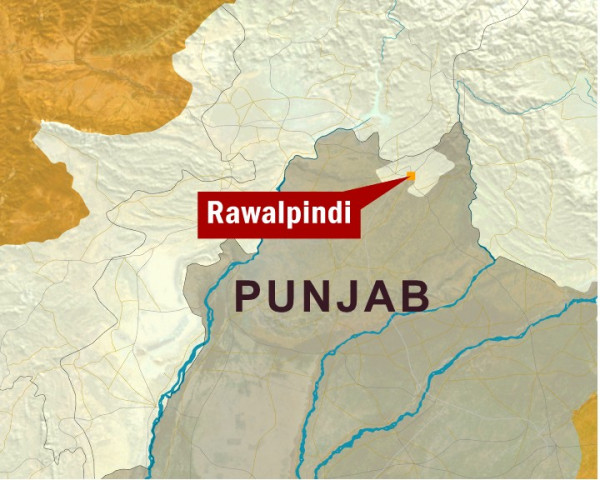Carrion hits Pindi
Rawalpindi’s health department recovers about 1200 kilograms (kgs) of carrion from a house in Shamsabad.

Carrion hits Pindi
Azad told The Express Tribune, “The mafia involved in this practice is on the loose due to lack of a comprehensive policy by the authorities to check the activity.” He added that selling carrion meat was a serious violation of basic consumer rights.
On Friday, Rawalpindi’s health department recovered about 1200 kilograms (kgs) of carrion from a house in Shamsabad. Azad said that this was not the first time that unhygienic meat was caught by the officials. Just a little over two weeks back, on September 9, officials seized rotting meat from Kuri road in Rawalpindi.
Various meat shops in Rawalpindi sell carrion at Rs50-60 per kg, according to Azad. He added that many restaurants bought meat from these shops at low rates.
Rana Mubashir, a food inspector in Rawalpindi, said that they daily received complaints of butchers selling rotten or unhygienic meat. Over the last 12 months, Mubashir said, the health department had lodged FIRs against 40 butchers found violating the department’s rules.
Some of the areas where shopkeepers were found selling unhygienic food include Dhok Kala Khan, Dhok Hassu, Dhok Naju, Dhok Matkyal, Pirwadhai, Hazara Colony, Sadiqabad and Westridge, he added.
The practice of selling carrion or unhygienic meat is fuelled by suppliers acquiring sick animals on low rates. These middlemen, said Mubashir, then slaughter the animals and store the meat in tanks filled with ice for two to three days, before they find a butcher to sell it to.
“We have also found some of the frozen meat being sold in large supermarkets to be unhygienic and unfit for human consumption,” he revealed.
Khurshid Qureshi, President Jamiat Al-Quresh Meat Welfare Association and Director Livestock and Dairy Development Board, conceded that the practice of selling bad meat had been going on for some months now.
Qureshi felt that the situation was being exacerbated by animal exports to Afghanistan. “A large number of animals have been killed in the recent floods. The impending shortage can be controlled somewhat by imposing a ban on animal exports,” he said.
However, Qureshi insisted, that the replacement of Dr Shehbaz Anjum, former General Manager of Rawalpindi-Islamabad Slaughterhouse, by Dr Arshad Ahmad had gone a long way to curtail this issue.
The rotten meat, according to Qureshi, is usually supplied from Sargodha, Jhang and other nearby areas.
Qureshi also expressed his concern over how the carrion scandal will affect butchers in the twin cities. “Their businesses have already suffered badly due to the inflation in meat prices after the recent devastating floods. These rumours [about carrion selling in the twin cities] will make the situation worse,” he said.
Carrion and rotten meat is known to cause various harmful affects to a person’s health. Dr Waseem Khawaja, a senior physician at Pakistan Institute of Medical Sciences, said eating a sick animal’s meat can cause food poisoning and multiple infections in stomach, intestine and liver.
“Some times food poisoning is so severe that it can even cause death,” he said.
Dr Hina Tabassum, a trainee doctor in the emergency ward of Holy Family Hospital in Rawalpindi said they treated at least 10 cases of food poisoning daily.
Published in The Express Tribune, September 26th, 2010.



















COMMENTS
Comments are moderated and generally will be posted if they are on-topic and not abusive.
For more information, please see our Comments FAQ